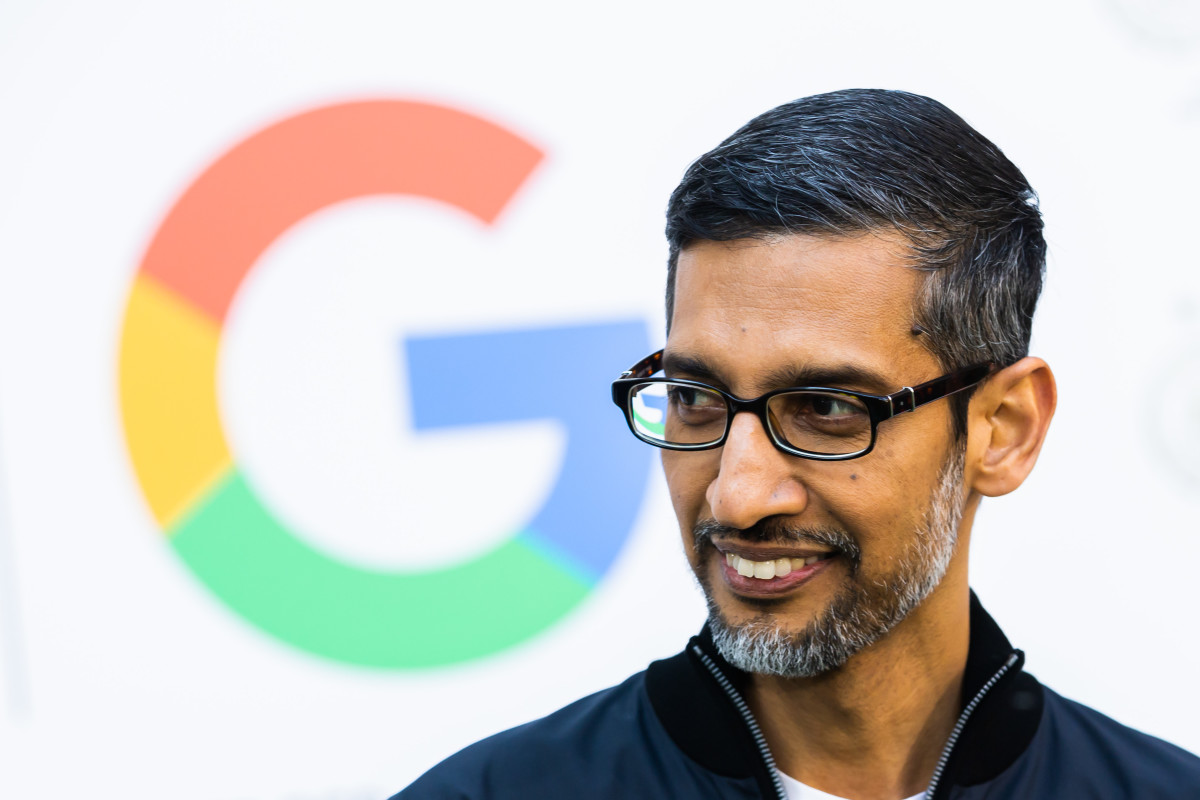
It was quite a year for words.
In 1601, "abrasive," "divestiture" and "theoretical" were among several words that were used for the first time in print, according to Merriam-Webster.
Related: Analyst reboots Google parent's stock price target on DoJ case
The word "monopolist" — meaning one who monopolizes — also made its debut that year. And 423 years later on Aug. 5, U.S. District Judge Amit Mehta used that very term in his ruling that found Google's parent, Alphabet (GOOGL) , violated U.S. antitrust law with its search business.
“After having carefully considered and weighed the witness testimony and evidence, the court reaches the following conclusion: Google is a monopolist, and it has acted as one to maintain its monopoly,” Mehta wrote in his opinion.
Kent Walker, Google’s president of global affairs, said the company intended to appeal Mehta’s findings.
This is one of several cases that the search, advertising and cloud-services giant is contending with in the U.S. as well as Europe, as regulators look to rein in the tech sector.
"As the tech world awaits the next steps in this landmark case, the decision gives US government enforcers momentum in their broader antitrust challenge to Big Tech," attorneys at Goodwin Procter wrote in an Aug. 14 post.

Alphabet fighting several legal battles
"The [Department of Justice] is currently engaged in litigation against Apple, alleging that Apple has used its monopoly in the smartphone market to stifle competition and raise prices," the firm added.
The post also noted that the Federal Trade Commission has recently filed antitrust lawsuits, accusing Amazon (AMZN) of illegally maintaining its monopoly position in the online retail industry and Facebook parent Meta Platforms (META) of illegally thwarting competition through its acquisitions of Instagram and WhatsApp.
Related: Analysts reset Alphabet stock price target before key September court event
"And lurking behind Judge Mehta’s recent decision is the impact of AI technology in online markets, which has already begun to face scrutiny from antitrust regulators worldwide," the post said.
An interesting component of the Court’s opinion is its discussion of the rise of artificial intelligence and concern that Google would use its market power to stifle competitors in the AI market, the firm said.
Goodwin Procter cited Microsoft (MSFT) CEO Satya Nadella’s testimony warning of a “nightmare” scenario if Google’s search term dominance continues, given Google’s vast trove of search data and its value in training AI.
TheStreet's Versace: Alphabet litigation a long process
TheStreet Pro’s Chris Versace wrote in August that whatever the eventual outcome is, “we expect that will take a long period of time, likely measured in years.”
“We expect Alphabet/Google will appeal these rulings just like we saw when the DoJ put the bullseye on Microsoft back in the late 1990s,” he said. “That suit, which started in May 1998 and looked to break up Microsoft, was eventually settled in mid-2004 following Microsoft’s appeal of the June 2000 verdict and its November 2001 agreement with the DoJ.”
In the coming 12 months, Versace said he would continue to focus on the fundamentals of the search and advertising and cloud businesses, and Google’s AI ambitions.
"This could very well come down to Google writing a large check and making some modest policy/operations revisions," he added.
Meanwhile, on Sept. 10, the company lost its final legal challenge against a European Union penalty for giving its own shopping recommendations an illegal advantage over rivals in search results.
The EU’s Court of Justice upheld a lower court’s decision, rejecting the company’s appeal against the 2.4 billion euro — $2.7 billion — penalty from the European Commission, the 27-nation bloc’s top antitrust enforcer.
One day earlier, the U.S. Justice Department, joined by a coalition of states, and Google each made opening statements to a federal judge in Alexandria, Va., who will decide whether Google holds a monopoly over online advertising technology.
Analyst: Search is 'still Google's game to lose'
The company is also being sued by longtime rival Yelp (YELP) , which accuses Google of using its dominance to control the local search market.
Alphabet is scheduled to report third-quarter results next month. Year-to-date, the company's shares are up nearly 13% and are almost 15% higher from a year ago.
More AI Stocks:
- Palantir stock leaps on big S&P 500 boost for data analytics group
- Veteran fund manager unveils startling Nvidia stock forecast
- Analysts reset Alphabet stock price target before key September court event
Investment firms issued research reports on Alphabet on Sept. 16, including Truist, which affirmed a buy rating and $196 price target on the company after hosting an expert call regarding generative-AI and its impact on search.
While gen-AI is transforming search engines into answer engines, upending a $220 billion industry and threatening Google's hegemony by fueling the emergence of AI-native platforms like OpenAI and Perplexity, this is "still Google's game to lose", the firm said.
Truist further notes that it sees much of gen-AI search volume as "incremental, not cannibalistic." And the firm says Google will continue to dominate monetizable core search in the near-to-medium term given its advertiser scale, brand and trove of proprietary transactional data.
Evercore ISI analyst Mark Mahaney lowered the firm's price target on Alphabet to $200 from $225 while maintaining an outperform rating on the shares.
The analyst said that "probable medium-term uncertainty" over the Department of Justice antitrust trials and their likely remedies will limit the potential for any near-or medium-term material rerating of the shares.
Following a call with a legal expert, Mahaney said a "worst-case" scenario is more likely than the market assumes.
A worst-case scenario would be one in which Google is no longer allowed to bid for exclusive search distribution deals in the U.S., and another company like Microsoft buys out its exclusive search distribution deals, Mahaney said.
This could lead to a material share loss by Google on the search access points covered by those distribution deals, which amounts to roughly half the U.S. search market, he added.
Related: Veteran fund manager sees world of pain coming for stocks







